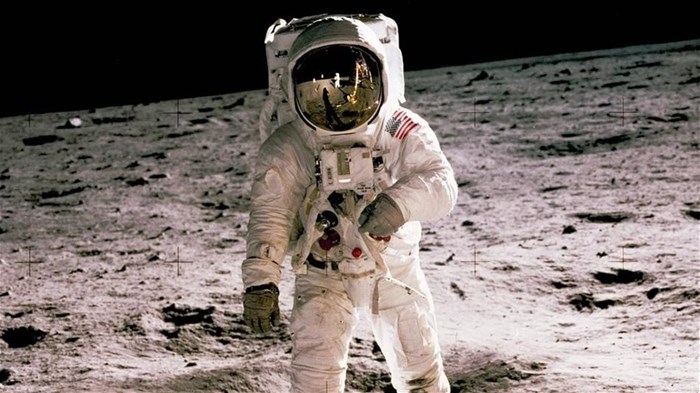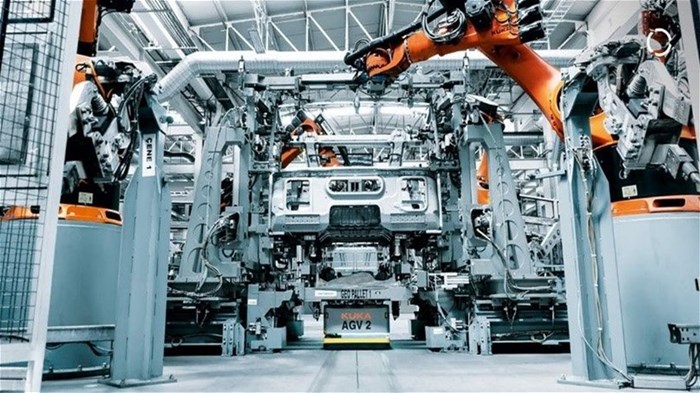The pace of technological change has slowed drastically, sometimes catastrophically, over the last few decades. I am guessing you don’t believe this. I have had this discussion with many different people, and they reference their smartphones, navigation, parking assist etc. usually with a starry-eyed wonder, and insist how amazing and bewildering it all is.
So, just to clarify, I know there have been some significant technological improvements in the last few decades. What I am talking about is the rate of change. It has previously been, and is supposed to be, exponential, with each innovation generating a host of new possibilities. But it is not like that anymore.
I know, I won’t convince you, but allow me to try.
Fifty-five years ago, we put a human being on the moon. Fifty-five years before that, in 1914, people were still charging into battle on horseback (quickly realising that was a terrible idea).
Horseback to moon landing - that is an exponential change, so not too surprising they thought, by now, we would all be living in space stations, and flying around in our own cars, personal fusion reactors in the boot. That seems ridiculous to us, right, but it seemed perfectly reasonable back in the 60s.
Now fast forward 55 years, and where are we on this stuff? We can barely put an unmanned lander on the moon’s surface, let alone an actual person. Back 55 years to humans on horseback. Forward 55 and what now?
A slightly more recent example, almost 40 years ago, in 1985, Phil Collins played at Wembley Stadium in the late afternoon, and that same evening, played drums for Eric Clapton in Philadelphia. Concorde technology travelled faster than the rotation of the earth, so it was possible to arrive before you left, in a manner of speaking.
This sort of thing is no longer obtainable, except in very specialised military applications. No matter how much you are willing to pay, and I am guessing there are billionaires who would pay a lot, you just can’t do it, because this technology is no longer commercially available.
Finally, a more recent and more personal example: 23 years ago, I visited a friend in New York. He had an extraordinary 6 channel sound system, 5 miniscule tweeters and a large sub-woofer. More amazing to me, though, was how he could watch almost any movie ever made by DVD mail subscription. Today, I subscribe to about five different streaming services, and I think I have less than one tenth the choice.
Okay, by now, I am guessing that you are thinking about Siri, your drone camera, video game graphics, Uber Eats, and everything like that, and suspect that I am just another cranky guy lamenting the ‘good old days’. But remember, all I am saying is the pace has really slowed down, not that it has stopped entirely. Even if you are not convinced, it may be worth speculating why this could be the case.
One factor could be the purely physical: some improvements will inevitably diminish, like sports records, which always improve, but at an ever-reducing pace. Another could be computational: the bigger and more chaotic a system, the less precise any calculation, because the rounding errors compound. You would probably need a computer the size of the solar system to achieve the accuracy of weather forecasting, featured in Back to the Future II.
But there is perhaps a more important reason, which I think is hidden in my DVD example from 23 years ago. It raises this question: how can something cost less to produce, but cost the consumer more?
Think about it: they don’t have to produce DVD’s anymore, nor the labels, packages, addresses, envelopes, no transport cost, less admin, and even the payment is now completely automated. I am sure there are big new costs associated with streaming technology, but I’d venture it is a lot less than physical production and distribution, especially at today’s scale of delivery.
Yet we pay more and get less. Why?
I noticed this trend on a trip to Johannesburg, where I saw a documentary about a car factory near Frankfurt, Germany. The level of automation was simply stunning. A human did not touch the thing until it was time to inspect and paint. I found this depressing, not just because of the job losses, but because my company, PERT, sells automation and mechatronic training systems.
The stuff I glimpsed in that factory, I had never seen before.
But, as it happened, I was renting a popular hatchback from that very same German company, and it had hardly evolved in almost 15 years - virtually identical, in form, function and performance. The biggest change, of course, was the price: nearly double, as I recall. So, I was getting the same thing at twice the price for, what appeared to be, a fraction of the cost of manufacturing. What the heck is going on, here?
Here is what I think, for what it is worth. With the consolidation and concentration of market power and wealth since the deregulation in the 80s and 90s, companies have been more and more able to appropriate their gains in technology, privatising and hording both the profits, and the technology itself. This precipitates a slowdown in innovation and change, which worsens as the cultural memory degrades.
I remember buying laptops in the 90s, where every two years, for the same money, you would get something twice as good. That was back in the last century when the gains of Moore’s law were enjoyed by consumers. Today, millennials expect to get less for their money. In 2022, I bought a ‘clearance’ iPad 9 for R6,000 – it is still available instore, and online, for R7,500 and no-one bats an eyelid.
Why do you still not believe me? It could be that the consolidation of power shapes the global narrative, through massive marketing spend, political lobbying, influencers, media clout etc. It could also be that I am completely wrong about this – such things do happen, more frequently than I care to admit. The thing is we suddenly do have a significant development in technology: Artificial Intelligence. It is not nearly as good as it seems, as you can see from my recent article:
Still, it is a sensational new tool, and big tech is throwing a huge portion of its considerable reserves in that direction - word in my local coffee shop is that AI engineers are being offered $800k a year! As you can see in Jon Stewart’s characteristically brilliant satire, developers are promising wonderful benefits to humanity, but Jon suspects the truth lies elsewhere.
They say it will tackle things like diseases and climate change and give us much more leisure. Jon suspects we will lose a lot of jobs and the obscenely wealthy will get richer still. Based on my reasoning above, I would go with Jon, unless we start regulating this, and other monopolistic practices hard and fast.
This seems to me both urgent and important, but no one is listening. Again, it could be because I have this completely wrong. But I am reminded of the legend of Cassandra. She was gifted with prophecy, yet the gift turned into a horrible curse. How did it become a curse? She could still see the future and tell everyone about it. But no-one believed her.








































